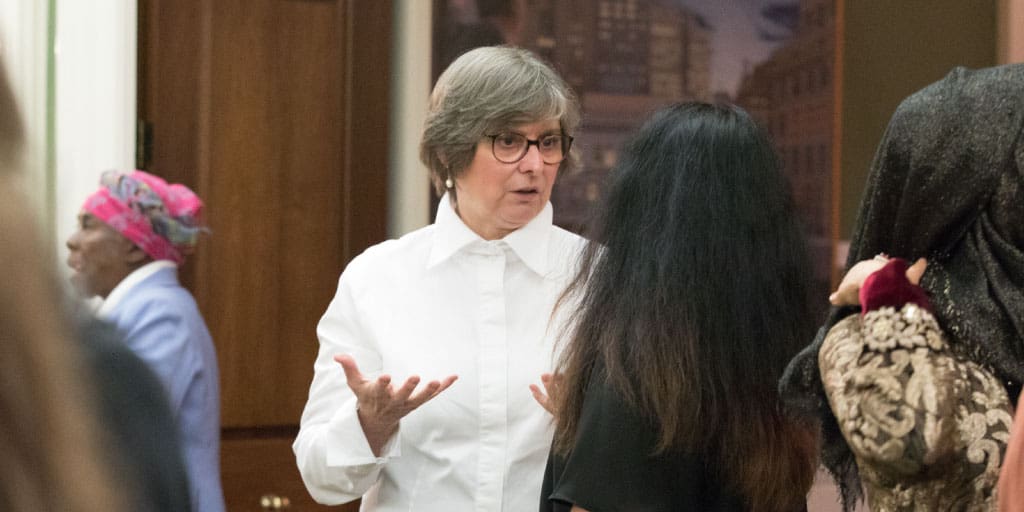PITTSBURGH – First Lady Frances Wolf and members of the Pennsylvania Commission for Women on Thursday joined business leaders, lawmakers and advocates for a roundtable discussion at Prototype PGH.
It focused on creating economic equity for women in Pennsylvania by ending gender-based pay discrimination and increasing the commonwealth’s minimum wage to $15 per hour.
“In Pennsylvania today, women make just 80 cents for every dollar a man makes – a wage gap that costs women an average of $10,000 a year. And the situation is far worse for women of color,” Wolf said.
“We have taken steps to eliminate the gender pay gap and increase the minimum wage for Pennsylvania state employees, but we need to do more. Working together, I know that we can make pay equity a reality for all Pennsylvanians.”
Gov. Tom Wolf is working actively to increase the minimum wage and eliminate the gender wage gap in the commonwealth.
In his first term as governor, he signed executive orders to both address the gender pay gap for executive branch employees in Pennsylvania state government and to increase the minimum wage for those same employees to $15 an hour by the year 2024.
He is now calling on lawmakers to do the same for all workers across the commonwealth.
The governor’s proposal to raise the wage to $12 per hour immediately and eventually to $15 per hour has been introduced by Sen. Christine M. Tartaglione as Senate Bill 12 and Rep. Patty Kim as House Bill 1215.
“Governor Wolf has made advancing opportunities for women a central goal of his Administration and the Commission is proud to join him now in advocating for economic equity for Pennsylvania’s women,” said Randi Teplitz, chair of the Pennsylvania Commission for Women.
“These policies would represent a significant pay increase for women in Pennsylvania – a raise that is long overdue.”
The First Lady was also joined by advocates who have been strong voices to end the pay gap in the state capitol and throughout Pennsylvania, including the American Association of University Women.
“Pay equity is not just a matter of fairness but the key to families making ends meet,” said AAUW-PA Public Policy Co-Chair Barbara Price.
“Wage discrimination limits women’s choices and has real consequences. It impairs their ability to buy homes and pay for a college education and limits their total lifetime earnings, thereby reducing their retirement savings and benefits.”
Women working full-time, year-round in Pennsylvania are paid just 80 cents on the dollar of what men are paid — a 20 percent gap.
That gap widens among minorities, with African-American women making 68 cents on the dollar, Native American women making 61 cents on the dollar and Latina women making 56 cents on the dollar.
Pennsylvania has not updated the state’s Equal Pay Act since 1959.
The commonwealth’s outdated minimum wage of $7.25 per hour is the lowest allowed by federal law and is the lowest among all of its neighboring states.
Of the two million Pennsylvanian’s who would benefit from an increase in the minimum wage, over 60 percent are women and a quarter are parents.




